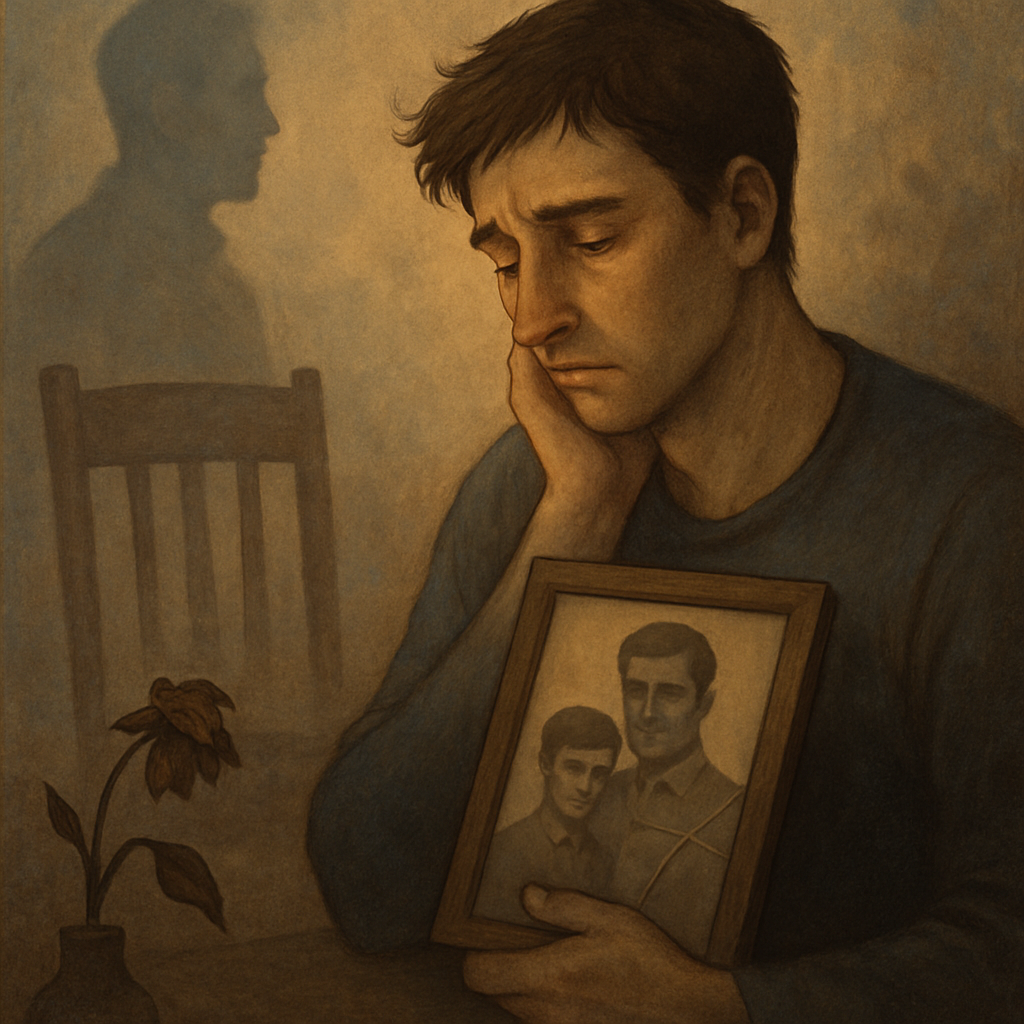💔
He sat on the edge of his bed. The screen of his phone flashed with happy posts, smiling fathers with their kids, and captions of gratitude. He scrolled, his thumb moving mechanically, his chest tightening with each image. A heaviness settled over him, a familiar weight he’d carried for years. He put the phone down and stared at the wall, feeling the absence of what others celebrated today.
👨💼 The Father’s Day Wound
I was sitting across from Mark, a successful executive who could command a boardroom of fifty people without breaking a sweat. Today, he was fighting back tears over a Hallmark holiday.
“I feel pathetic,” he said. “I’m forty-three years old. Why does Father’s Day still hit me like a freight train?”
I’ve heard this same question from hundreds of men. The shame they feel for their pain is often worse than the pain itself. They believe they should be “over it” by now.
Here’s what I know after fifteen years of working with men: Father wounds don’t have an expiration date. That relationship—or the lack of one—forms the prototype for how you see authority, how you view your own worth, and how you approach every relationship that follows.
What nobody tells you about being a man is that the pain you feel isn’t weakness—it’s your emotional guidance system functioning exactly as designed. The problem isn’t that you feel the pain; it’s that you were never taught what to do with it.
📱 The Comparison Trap
I see it every year—men scrolling through social media on Father’s Day, comparing their reality to the highlight reels of others. What you’re actually experiencing is a complex emotional byte—a fundamental unit of emotional information that contains physical sensations (that tightness in your chest), an emotional charge (the sadness or anger), information about your unmet needs (for validation, acceptance, mentorship), and the story you’ve created around what this means about you.
“I just need to forget about him,” another client told me. I smiled, having tried that strategy myself for years.
“How’s that working for you?” I asked.
“Not great,” he admitted.
That’s because you can’t outrun emotional bytes. They’re not just feelings—they’re information packets telling you what you need. When you try to dismiss them, they just shout louder.
I crashed three relationships and nearly lost my business before I learned this truth. I wasn’t failing because I missed having a dad. I was failing because I refused to acknowledge what that absence had taught me to believe about myself and others.
🔍 Your Invisible Framework
The relationship with your father—good, bad, or nonexistent—creates an emotional frame that acts like an invisible lens through which you see everything else. This frame shapes what you notice, what you expect, and how you respond.
I worked with a client who kept getting passed over for promotions despite being exceptionally qualified. In our sessions, we discovered his emotional frame around authority figures: “They’ll never truly value me.” This frame was established by a father who withheld approval, and it was now sabotaging his career advancement without his awareness.
Your father relationship doesn’t just affect how you see dad—it creates an emotional script that automatically activates in situations involving evaluation, acceptance, or male bonding. These scripts feel inevitable and “just how things are” until you develop the meta-emotional intelligence to recognize them as learned patterns.
⚖️ The Balance of Things
On the balance of things, here’s what I’ve found to be true:
- Healthy men don’t ignore father wounds—they metabolize them into wisdom 🧠
- The most successful men I know have learned to rewrite their emotional scripts, not suppress them ✍️
- Your unresolved feelings aren’t childish; they’re signposts pointing to what needs integration 🧭
The truth is that no relationship defines you entirely, but few relationships shape you more profoundly than the one with your father. And if that relationship was broken, absent, or toxic, the emotional bytes it created will continue to impact you until you consciously reprogram them.
🎯 The Straight Shot Principle
Here’s my Straight Shot: The path forward isn’t getting over your father wound—it’s getting through it.
Instead of trying to eliminate these feelings when they arise on days like Father’s Day, try this field-tested approach:
- Name the emotional byte you’re experiencing (“I’m feeling the absence of paternal approval”)
- Identify the physical sensation it creates (tightness, emptiness, heaviness)
- Recognize the need it represents (validation, guidance, unconditional acceptance)
- Challenge the narrative it’s telling you (“His inability to love me well wasn’t about my worth”)
I’ve seen this simple practice transform men who spent decades being ambushed by their emotions into men who can navigate them strategically.
Truth is, the depth of your pain over an absent or hurtful father directly correlates to your capacity for exceptional connection once you heal it. The very sensitivity that makes you hurt today is what will make you an extraordinary partner, friend, leader—and if you choose, father—tomorrow. 💪
—Jas Mendola, knowing that what breaks us becomes the foundation we build upon when we have the courage to pick up the pieces 🏗️

